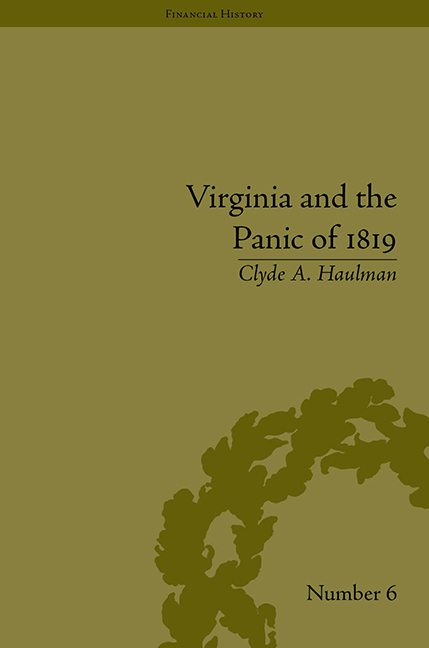Book contents
4 - Agriculture, Exports and Land
Summary
As the year 1821 drew to a close, a meeting of the citizens of Norfolk overwhelmingly passed a series of resolutions regarding the ‘pernicious’ effects of Congressional actions in 1818 and 1820 that closed American ports to British ships. ‘Destroying our commerce, and injuring all classes of our citizens’, these navigation acts, according to the resolutions, were ‘operating most unequally and partially upon different sections and portions of the Union, burdening the products of agriculture in a fruitless attempt to promote the shipping interest, diminishing the revenue, and threatening, in the issue, to produce many great and lasting evils to the whole nation’. The economic crisis that led Norfolk's citizens to take action resulted from the combined effects of the American Navigation Acts to which the resolutions were directed and the more general impacts of the new nation's first modern business cycle, the Panic of 1819.
A few years before, in early February 1815, a banner in the Norfolk Gazette and Public Ledger carried the ‘glorious news’ of peace ending the War of 1812, brought in fifty hours from New York by the schooner James Lawrence. That night, the mayor ‘recommended’ an illumination that was, according to the following Saturday's press, ‘more general than ever we saw’. To celebrate the peace in Richmond, Mayor Thomas Wilson ordered an illumination for 1 March. ‘The Capital and all the houses of the town were illuminated … and there was a mile long procession of soldiers and citizens carrying transparencies.’ Although the word of a peace treaty brought joy to Virginians and enabled the frigate Constellation, blockaded in Norfolk since early in 1813, to sail for New York, it did not erase the concern of some for the future of Virginia's export-based agricultural economy. As a Norfolk editorial regarding the treaty indicated, ‘In a commercial view we have gained nothing; for commerce is not even noticed, nor indeed was it to be expected, that commercial objects would be embedded in a treaty of peace and amity’. With the peace, a more rigorous enforcement of British navigation acts restricted the entry of American goods and vessels to British colonial ports, particularly in the West Indies.
- Type
- Chapter
- Information
- Virginia and the Panic of 1819The First Great Depression and the Commonwealth, pp. 57 - 72Publisher: Pickering & ChattoFirst published in: 2014

